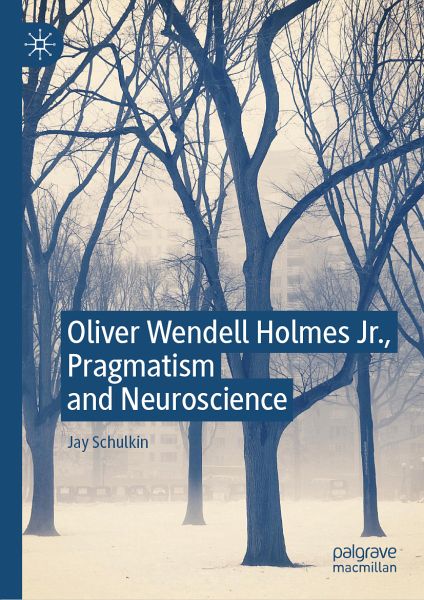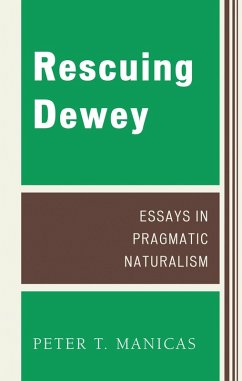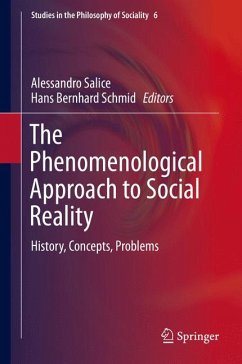
Oliver Wendell Holmes Jr., Pragmatism and Neuroscience (eBook, PDF)
Versandkostenfrei!
Sofort per Download lieferbar
64,95 €
inkl. MwSt.
Weitere Ausgaben:

PAYBACK Punkte
32 °P sammeln!
This book explores the cultures of philosophy and the law as they interact with neuroscience and biology, through the perspective of American jurist Oliver Wendell Holmes' Jr., and the pragmatist tradition of John Dewey. Schulkin proposes that human problem solving and the law are tied to a naturalistic, realistic and an anthropological understanding of the human condition. The situated character of legal reasoning, given its complexity, like reasoning in neuroscience, can be notoriously fallible. Legal and scientific reasoning is to be understood within a broader context in order to emphasize...
This book explores the cultures of philosophy and the law as they interact with neuroscience and biology, through the perspective of American jurist Oliver Wendell Holmes' Jr., and the pragmatist tradition of John Dewey. Schulkin proposes that human problem solving and the law are tied to a naturalistic, realistic and an anthropological understanding of the human condition. The situated character of legal reasoning, given its complexity, like reasoning in neuroscience, can be notoriously fallible. Legal and scientific reasoning is to be understood within a broader context in order to emphasize both the continuity and the porous relationship between the two.
Some facts of neuroscience fit easily into discussions of human experience and the law. However, it is important not to oversell neuroscience: a meeting of law and neuroscience is unlikely to prove persuasive in the courtroom any time soon. Nevertheless, as knowledge of neuroscience becomes more reliableand more easily accepted by both the larger legislative community and in the wider public, through which neuroscience filters into epistemic and judicial reliability, the two will ultimately find themselves in front of a judge. A pragmatist view of neuroscience will aid and underlie these events.
Some facts of neuroscience fit easily into discussions of human experience and the law. However, it is important not to oversell neuroscience: a meeting of law and neuroscience is unlikely to prove persuasive in the courtroom any time soon. Nevertheless, as knowledge of neuroscience becomes more reliableand more easily accepted by both the larger legislative community and in the wider public, through which neuroscience filters into epistemic and judicial reliability, the two will ultimately find themselves in front of a judge. A pragmatist view of neuroscience will aid and underlie these events.
Dieser Download kann aus rechtlichen Gründen nur mit Rechnungsadresse in A, B, BG, CY, CZ, D, DK, EW, E, FIN, F, GR, HR, H, IRL, I, LT, L, LR, M, NL, PL, P, R, S, SLO, SK ausgeliefert werden.












